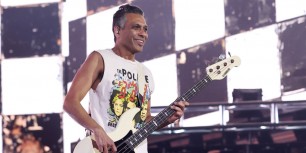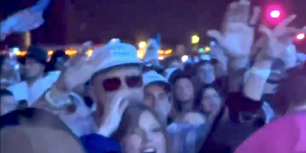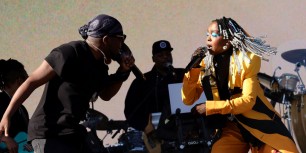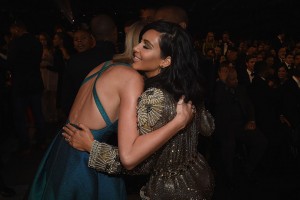This week marks the first week of presidential election for Brazil, an exciting and ever-tightening race between current president Dilma Rousseff and her main competitor, Socialist Party candidate Marina Silva.
So much music is based on political discontent and what better time for discontent than a presidential election? Brazil has hosted many huge protests due to poverty and other social ills occurring alongside the construction of new stadiums for the 2014 World Cup and 2016 Olympic Games, so Music Times dug up some protest music from Brazilian history for your consideration.
"A Banda" by Chico Buarque and "Disparada" by Geraldo Vandré and Théo de Barros (1966)
Brazil's 20th century history is marred by a 21 year period between 1964 and 1985 where the country was ruled with an iron fist by the military. That always marks the opportunity for protest songs from performers brave enough to stand up to censorship a.k.a disappearance. Although newspapers and other media were censored by government editors, large televised music festivals were not, which allowed one of the few public forums to air out grievances. Still, musicians tended to be understandably less-than literal in their words. The II Festival of Música Popular Brasileira featured two standout numbers from Chico Buarque, who would become one of the most noted protest song writers, and the combination of Geraldo Vandré and Théo de Barros respectively. The former's "A Banda" described the brief moment of happiness experienced by a town when the band marches through, sandwiched by sorrow due to the current state of society. The latter's "Disparada" uses cattle herding as a metaphor for what the government was doing to its people. Both shared the prize for first place at the event.
Brazil: Songs of Protest by Zelia Barbosa (1968)
As you may have guessed, Brazil during the '60s was not the optimal time to be releasing full albums worth of political protest songs. Hence probably why Zelia Barbosa's 1968 album Brazil: Songs of Protest was released only in the United States by Monitor Records. Brazil was noted as unique for its avoidance of typical Brazilian pop fare at the time (the beauty of the country etc., which is true but not relevant here) in favor of grittier narratives. Barbosa didn't write any of the tracks, including a rendition of the famous "Opinao," but she was the right voice to carry them to an international audience.
"O Bêbado e A Equilibrista" by João Bosco and Aldir Blanc (1979)
This track (translated to "The Drunkard and The Ropewalker") was another metaphorical piece written as subtle protest for the government's sins, written by Joao Bosco and Aldir Blanc, and performed by Elis Regina. The song references the many artists and others either imprisoned or exiled after the coup d'état. One famous line refers to "the return of Henfil's brother." Henfil was the alias of countercultural cartoonist Henrique de Souza and his brother was Herbert de Souza, a prominent activist and chief of staff for the Ministry of Education before the coup and exiled because of it. The song became a universal protest track for those literally and figuratively lost to the military's misdeeds.
"Ven Pra Rua" by Marcelo Falcão (2013)
Not all protest songs are written with the intent of becoming protest songs. "Ven Pra Rua" (or "Come to The Street") was recorded for quite the opposite: The jingle, recorded by vocalist Marcelo Falcão of the reggaeton group O Rappa, was intended for a Fiat commercial. When large-scale protests occurred during 2013 in response to an increase in public transit fares among other issues, those in the struggle chanted the song's hook (roughly translated): "Come to the street, because the street is the largest venue of Brazil." The automaker embraced the reattribution, saying that the song was now for the people and not the car company. However that doesn't mean they licensed it to play on the radio.
"Desculpe, Neymar" by Edu Krieger (2014)
The transit fare protests never ended so much as they simmered, emerging again in the months leading up to the 2014 World Cup. Edu Krieger was one of many performers to join the fray, lamenting that although he was a huge fan of Brazilian futbol he couldn't support the team amid the misuse of funds in a nation with poverty rates approaching 20 percent. "Sorry Neymar," he addressed the team's superstar in his title, "But I won't support you this time/We have beautiful, monumental stadiums while the schools and hospitals are on the brink of ruin" (translation via The Guardian).
There are plenty more from where we got these. If you've got any must-listens let us know in the comment section.













